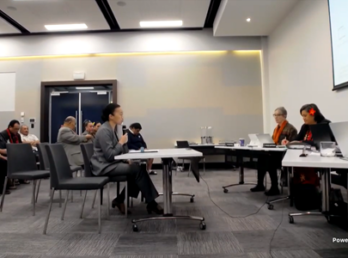Getting A Quick Judgment articles
Date
18 Aug 2018
Related Expertise
Many clients think that their case is so clear that they should receive judgment straight away. In some cases they are right.
A process is available to get judgment straight away. That process is called the summary judgment process. The summary judgment process is available where the defendant has no defence to the claim. In other words there is no question that needs to be tried by a court. On an application for summary judgement the Court must be left without any real doubt or uncertainty about the plaintiff’s claim.
If the plaintiff wants to follow the summary judgment process it has to demonstrate to the court that there is sufficient evidence to show that there is no defence.
The defendant has to respond for the application to be defeated. If the defendant does respond the defendant is obliged to show that there is a reasonably arguable defence. Therefore a defendant is obliged to swear an affidavit setting out facts which support a legally recognisable defence.
There are many such defences. For example, the defendant might say it did not enter into the contract in question, or, the defendant was misled, or, there was a mistake for which the defendant is entitled to relief. There are many other examples.
The court will not give judgement on a summary judgment application if there is a credibility issue over a material fact. Summary judgment applications are made and defended on the papers. What this means is that the parties file documents with the court. If one party says one thing which is contradicted by what the other party says on a material fact, the court can’t decide who is telling the truth. The court ordinarily needs to see and hear witnesses to determine who is telling the truth. As we all know, the way in which a person says something, their demeanour, and the like, are ways in which all humans decide whether they believe somebody or not. A judge is no different. A judge is required to look and hear a person give evidence and decide whether or not that person is believable or not.
For that reason the court will not give summary judgment where there is a credibility issue to be resolved.
The courts however will take a robust and realistic approach to the facts as disclosed in the documents, but in particular the affidavits(which are sworn) when assessing whether or not a credibility issue is one which truly needs to be resolved by trial.
A defendant might say they have a counterclaim. A counterclaim is a claim that the defendant has against the plaintiff for a loss it has incurred. A counterclaim does not prevent summary judgment from being entered. However the court has the discretion to grant judgment on terms.
A set off is where a plaintiff’s claim can be reduced or eliminated by a claim where it would not be just to allow the plaintiff to have judgment, for example in situations where the set off arises out of the same transaction. A set off can defeat a summary judgment application because the set off impeaches the plaintiff’s claim.
Sometimes it is a fine balance as to whether or not a summary judgment application is appropriate. What sometimes tips the balance in favour of an application is the tactical advantage of having the defendant commit themselves to a position in an affidavit. If the application for summary judgment is not successful the defendant has committed itself to a position which at trial might be difficult to move from.
If a summary judgment application is successful, the plaintiff is entitled to costs. Ordinarily, if the plaintiff is not successful costs are not awarded against the plaintiff. This is because the application itself quickly identifies the issues and the defendant has only a relatively low threshold to overcome, namely a reasonably arguable defence. Sometimes the defences aren’t known to the plaintiff until they are disclosed in the documents opposing the application.
What regularly happens after a summary judgment application, even if unsuccessful, is that the parties enter into settlement discussions and the matter resolves so that the parties can move on with their lives.
The system is designed to resolve disputes so that people can get on with their lives. The summary judgment process is a useful one to follow to get a dispute resolved quickly.
Subscribe
Get insights sent direct to your email.




















